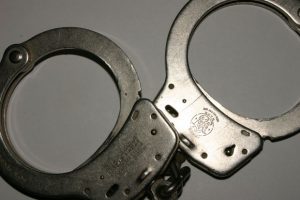Supreme Court May Have Just Expanded Unlawful Police Searches
The U.S. Supreme Court has just handed down two rulings that may have widened the ability of law enforcement to conduct illegal searches – something our Los Angeles marijuana arrest lawyers find deeply troubling. 
In one case, there was an expansion of the exception to a long-standing rule that unlawfully-gathered evidence had to be discarded. In the second ruling, the court held that those who deal drugs – even those who only selling locally to their neighbors – were in effect a part of some larger interstate commerce.
As Phillip Smith of StopTheDrugWar.org pointed out, these two decisions:
- Widen local police’s ability to sidestep the law without accountability;
- Give prosecutors the muscle of the federal government to crush small-time, low-level drug dealers and other criminals.
The high court has long deferred to the position of law enforcement officers. But this is often done to the detriment of the public at-large.
Let’s look at each case individually.
First up is Utah v. Strieff, in which a detective investigating possible drug sales at a private residence stopped defendant absent reasonable cause as soon as he stepped outside his home. During this encounter, the officer discovered defendant had an outstanding traffic warrant. At that point, officer arrested defendant and searched him. In the course of that search discovered meth and paraphernalia, for which defendant was charged.
Defendant sought a motion to suppress evidence of the items discovered in the search because it was the result of an investigatory stop that was unlawful. At both the trial and the appellate court, he lost. However, his conviction was overturned by the state high court, which determined the “attentuation doctrine” – which is an exception to the exclusionary rule – was not applicable. However, the U.S. Supreme Court did not agree and reversed.
The attenuation doctrine, for those not familiar, is the principle that evidence unlawfully obtained can be used even if it is the result of a search that is affected by an unlawful initial detention if there is a circumstance that is intervening. The U.S. Supreme Court in a 5-3 decision determined the police misconduct was basically not severe enough to suppress the evidence. But of course, that’s pure speculation, and one that or Los Angeles marijuana lawyers believe takes a rosy view of law enforcement.
The second case, Taylor v. U.S., the high court ruled that federal prosecutors can use federal law to pursue those who commit robbery against drug dealers – even when the dealers are only peddling marijuana that is locally grown and there is no evidence the sales were occurring across state lines.
That decision, which was reached 7-1, was the latest in a string of cases that has ruled in favor of the federal government’s use of the interstate commerce clause in drug cases. Another was the 2005 case of Gonzales v. Raich, in which the high court upheld the right of the federal government to take action against those who grow and sell marijuana, even in states where doing so is legal.
In Taylor, defendant as part of a gang that targeted marijuana cultivators and dealers for robbery. The majority ruled he could be charged federally per the Hobbs Act. The sole dissenting Justice Clarence Thomas ruled the use of the commerce clause in these cases granted too much power to the federal government.
The Los Angeles CANNABIS LAW Group represents growers, dispensaries, collectives, patients and those facing marijuana charges. Call us at 949-375-4734.
Additional Resources:
Supreme Court Opens Door for More Lawless Police Searches, June 20, 2016, By Phillip Smith, The Daily Chronic
More Blog Entries:
Marijuana Possession Arrests Up in NYC, Despite Decriminalization, June 14, 2016, Los Angeles Marijuana Lawyer Blog
 Cannabis Law Group's Medical Marijuana Legal Blog
Cannabis Law Group's Medical Marijuana Legal Blog




